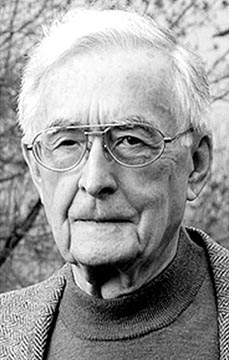Tom Kent thought a lot about how Canadians should live. As policy adviser to Liberal prime minister Lester B. Pearson he contributed his ideas to the construction of the Canadian welfare state. After leaving government, he worked on policy issues for the rest of his life, chairing a Royal Commission on Newspapers, editing Policy Options, and writing about social policy for the Caledon Institute.
Many of his ideas were controversial. An immigrant to Canada himself in 1954, he wanted landed residency limited to three years. After that someone became a citizen or left. Once a Canadian citizen, one should always be a Canadian taxpayer, even when living abroad.
Kent, who passed away Nov. 15, left Canadians a testament: equality of opportunity, and fairness of outcomes was what he wanted to see for Canada. In a Toronto Star article drawn from a longer paper — the first to be published by the Broadbent Institute — Kent called for Canada to pursue social democracy: “a society where the enterprise of productive employment in a market economy is joined with active government to secure the public interest.”
In some ways, Kent was a perfect voice for active government. As a journalist with the Manchester Guardian in postwar Britain, he watched the Labour Party introduce its own style of economic and social planning. The ideas that animated Scandinavian social democracy were readily available to a journalist like Kent, who later worked for the Economist, before coming to Canada, and becoming editor of the Winnipeg Free Press.
In Canada, Kent joined Walter Gordon in reviving the Liberal party, after the Diefenbaker sweep had killed of the CCF, and reduced the mighty Liberals to a parliamentary rump.
For Kent, as for orthodox social democrats, competitive market capitalism created wealth, but governments could re-distribute it from market winners to market losers.
All social democrats like re-distribution, but in Canada what has been missing from the NDP (as from Kent) is a strong critique, spoken out loud, of an economic system which creates growing inequalities, undermines the eco-system, and uses governments to advance its ends through international agencies such as the WTO or trade deals like NAFTA.
When capitalism collapsed in the 1930s, the CCF proposed economic planning, and public ownership as replacements for market competition. By the mid-1950s, in the Winnipeg Manfesto, the party had accepted the idea of a mixed economy, while maintaining a social planning framework. Today, its successor, the NDP, has produced no comparable analysis of what to do to create meaningful economic change. Yet the capitalist system is losing credibility with the public, and being de-legitimized as a source of wealth by its own actions, which clearly create more future environmental and social costs than could ever be justified by current paper profits.
What Kent did stand for, and speak out for, throughout his life, is the public interest. And the debate for the future is about creating a public space where the public interest can be debated, defined, and advanced.
The “Occupy” movement was seen as a threat to the existing order because it dared take up public space with no intention of leaving. And once in place participants debated the public interest, inventing citizen assembly democracy to do it. Most people think direct democracy is impossible, that representative democracy is about as much as we can get, and that even that works badly.
Kent understood Canadians “have lost faith in the capacity of our political system to deliver the kind of government most Canadians want.” But, he refused to believe the activist right had won much more than a 30-year skirmish.
With his clear head, and fine hand, he put words on paper believing until his time ran out that Canadians deserved a better future, and that he could help make it happen. It was not enough that working for Pearson in the 1960s, he had already helped to bring in the Canada/Quebec pension plan, medicare, cost sharing for post-secondary education, the Canada Assistance Plan for welfare, and championed regional economic development. Tom Kent wanted to see Canada progress again.
Duncan Cameron is the president of rabble.ca and writes a weekly column on politics and current affairs.




